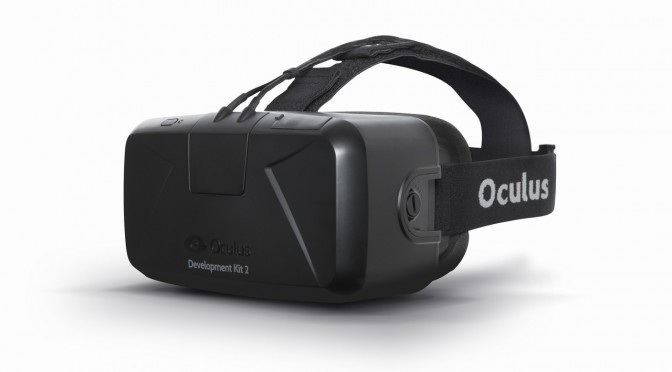Oculus’ Palmer Luckey held a Reddit AMA, in which he answered a lot of questions regarding the Oculus Rift. The consumer model of Oculus Rift will be priced at $599; a price nowhere close to the $349 that was advertised a while back. And Palmer Luckey decided to shed some light on why the Oculus Rift will be more expensive than anticipated.
As Palmer claimed in a lengthy post:
“Earlier last year, we started officially messaging that the Rift+Recommended spec PC would cost roughly $1500. That was around the time we committed to the path of prioritizing quality over cost, trying to make the best VR headset possible with current technology. Many outlets picked the story up as “Rift will cost $1500!”, which was honestly a good thing – the vast majority of consumers (and even gamers!) don’t have a PC anywhere close to the rec. spec, and many people were confused enough to think the Rift was a standalone device. For that vast majority of people, $1500 is the all-in cost of owning Rift. The biggest portion of their cost is the PC, not the Rift itself.
For gamers that already have high end GPUs, the equation is obviously different. In a September interview, during the Oculus Connect developer conference, I made the infamous “roughly in that $350 ballpark, but it will cost more than that” quote. As an explanation, not an excuse: during that time, many outlets were repeating the “Rift is $1500!” line, and I was frustrated by how many people thought that was the price of the headset itself. My answer was ill-prepared, and mentally, I was contrasting $349 with $1500, not our internal estimate that hovered close to $599 – that is why I said it was in roughly the same ballpark. Later on, I tried to get across that the Rift would cost more than many expected, in the past two weeks particularly. There are a lot of reasons we did not do a better job of prepping people who already have high end GPUs, legal, financial, competitive, and otherwise, but to be perfectly honest, our biggest failing was assuming we had been clear enough about setting expectations. Another problem is that people looked at the much less advanced technology in DK2 for $350 and assumed the consumer Rift would cost a similar amount, an assumption that myself (and Oculus) did not do a good job of fixing. I apologize.
To be perfectly clear, we don’t make money on the Rift. The Xbox controller costs us almost nothing to bundle, and people can easily resell it for profit. A lot of people wish we would sell a bundle without “useless extras” like high-end audio, a carrying case, the bundled games, etc, but those just don’t significantly impact the cost. The core technology in the Rift is the main driver – two built-for-VR OLED displays with very high refresh rate and pixel density, a very precise tracking system, mechanical adjustment systems that must be lightweight, durable, and precise, and cutting-edge optics that are more complex to manufacture than many high end DSLR lenses. It is expensive, but for the $599 you spend, you get a lot more than spending $599 on pretty much any other consumer electronics devices – phones that cost $599 cost a fraction of that to make, same with mid-range TVs that cost $599. There are a lot of mainstream devices in that price-range, so as you have said, our failing was in communication, not just price..”
Palmer then said that there will be at least 100 titles for Oculus Rift when it’s launched (over 20 Oculus Studios titles, and many more 3rd party titles).
The Oculus Rift will not be exclusive to Windows 10. As Palmer said, the Oculus Rift supports Windows 7, Windows 8, and Windows 10.
But what about its PC requirements? Oculus recommends an NVIDIA 970 or an AMD 290 for the Oculus Rift. However, these GPUs will not be able run all triple-A games at max settings, something that really does not surprise us.
“You won’t necessarily be able to play all games at MAX settings on the recommended spec. You will be able to play everything in the Oculus store at a high quality level (90 FPS) on the recommended spec.”
Last but not least, Palmer confirmed that the cables will be 4 meters long from the headset to the PC, though PC gamers will be able to use extenders.

John is the founder and Editor in Chief at DSOGaming. He is a PC gaming fan and highly supports the modding and indie communities. Before creating DSOGaming, John worked on numerous gaming websites. While he is a die-hard PC gamer, his gaming roots can be found on consoles. John loved – and still does – the 16-bit consoles, and considers SNES to be one of the best consoles. Still, the PC platform won him over consoles. That was mainly due to 3DFX and its iconic dedicated 3D accelerator graphics card, Voodoo 2. John has also written a higher degree thesis on the “The Evolution of PC graphics cards.”
Contact: Email

